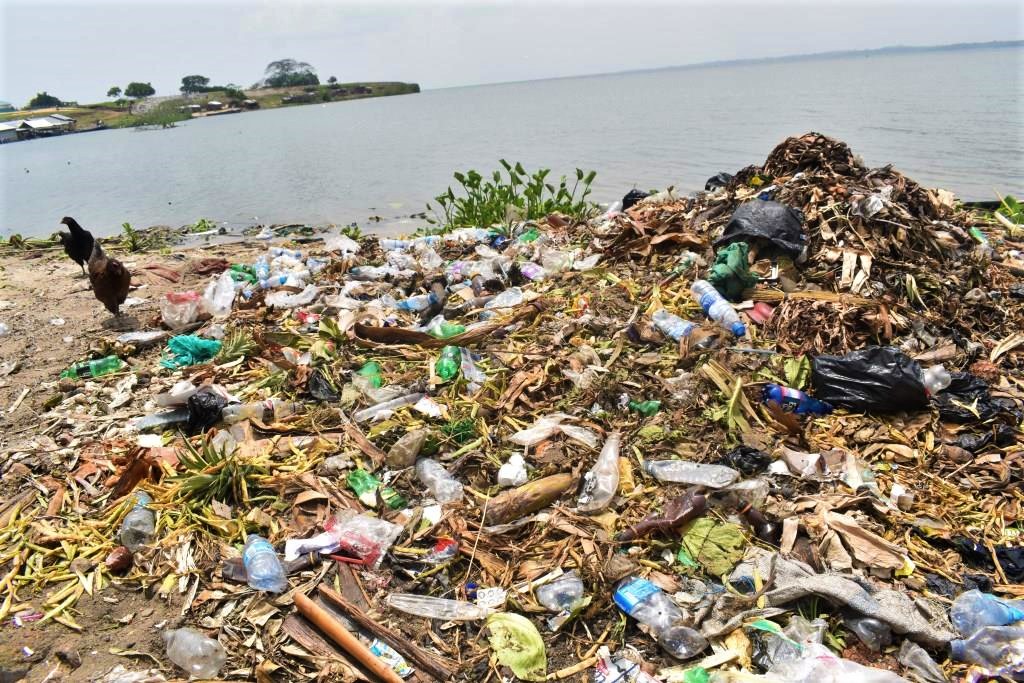By Nabendeh Wamoto
Sironko District has been confirmed by government to be the host for this year’s World Environment Day on June 5, 2024. We in Likono Lye Bamasaaba for Development Initiative are fully geared to plant bamboo along all rivers and stream banks and seek stake holders’ backup.
Uganda continues to be severely affected by natural and man-made disasters and conflicts which among others include; floods, landslides, droughts, earthquakes, diseases and epidemics and fire outbreaks. The country is a victim of floods that have led to the loss of lives and property, devasted infrastructure, reduced agricultural productivity, destroyed education facilities and worsened access to clean and safe water especially in the Mt. Elgon area, Northern, Eastern and recently the Central regions of the country. These natural and man-made disasters are a threat to national peace and security. Natural resources are inherently good; they can generate wealth and contribute to peace and development. To ensure that Uganda’s and global natural resource wealth serves as an engine for sustainable socio-economic development rather than a source of conflicts and under development, good political, economic and corporate governance is of paramount importance.
Throughout history, the environment has been frequently used as a weapon of war. Vegetation has been burned, soil and water supply contaminated and the air fouled as it suited a military mission. The destruction of croplands, forests, houses, towns and infrastructure among others has been commonplace. Therefore, the environment is not only a weapon of war but a victim of war as well. Climate change could be the cause of the third world war that is why there is need linking environmental sustainability to national security.
Indeed, evidence is emerging that many conflicts in the world especially in developing countries are driven by natural resources scarcity or inequitable access and benefits sharing. Oil, timber, diamond, uranium just to mention but a few have played a major role in fueling some of Africa’s most brutal wars in the recent past in such countries as the Democratic Republic of Congo (DRC), Sierra Leone, Angola, Nigeria (Niger delta) Liberia, South Sudan and Sudan. In the great lakes region, the horn of Africa and indeed the entire sub Saharan African region, the mismanagement of natural resources is at the heart of many conflicts and disasters.
The resulting environmental insecurity arising from the mismanagement of natural resources causes loss of livelihoods, which in turn leads to social tension thus causing, triggering and or aggravating armed conflicts. One clear case of insecurity driven by environmental scarcities are the conflicts between the pastoral communities such as the marauding Balaalo, Pokot and Karamojongs. The settled agricultural communities in disaster prone regions like Bududa, Namisindwa, Mbale, Sironko and Bulambuli districts are a star example. These are essentially natural resource-based conflicts arising out of access to farmland, water and pasture land. These conflicts are also transboundary and indeed spill over into Kenya and Sudan through the Pokot and the Topoth respectively. This surely can cause war if not managed carefully and cautiously.
Land which arguably is Uganda’s most important resource in increasingly becoming volatile and a source of conflicts. Indeed, most of the now millions of cases reported to police and in courts of law are land related.
One of the impacts of armed conflicts is the creation of refugees, which has significant environmental implications. Uganda has a big number of both refugees fleeing fighting in the neighboring countries and Internally Displaced Persons (IDP’s) in the case of Uganda arising out of the 20-year war in Acholi with the then Lord’s Resistance Army (LRA). Refugee settlement results into land degradation, pressure on resources such as water, forests which in turn increases human vulnerability.
Many international boundaries are marked on natural resources assets such as major rivers, lakes, hills and mountains. For instance, River Semliki defines some parts on the border with the Democratic Republic of Congo (DRC). Land degradation on the banks of river Semliki has caused a shift in the national boundary with Uganda losing territory to the DRC. Therefore, what could be role of the Army in implementing the environmental policy in Uganda
Sustainable environmental management requires partnerships to be created with all stakeholders including the Uganda People’s Defence Forces (UPDF). The army as a disciplined institution the world over plays a leading role in environmental management some of which includes the following:
Securing and protecting Uganda as a sovereign State including her international borders.
Cleaning up, removing and immobilizing hazardous substances in military installations and riding the environment of military wastes (Ordinances) such as grenades, land mines, rockets and bullet shells.
Put in place and use solid waste management systems including waste bins.
Ensure good hygiene measures by putting in place in military barracks including construction and maintenance of latrines/toilets and other sanitary concerns.
Develop waste management infrastructure such as incinerators capable of handling complex wastes such as hazardous toxic wastes.
Incorporate environment and natural resource issues into post – conflict activities including security sector reforms and reintegration of former combatants into community (civilian) life.
The army consumes a lot of energy in form of biomass (fuel wood) and oil; it is therefore advised that adoption of energy efficiency technologies and planting of trees by the army is undertaken.
Some military installations (barracks) are on bare hills where this does not compromise security, the army should be engaged in planting trees on these bare hills.
Share lessons and experiences (local and international) in environment management in operational zones or conflict areas.
Conserve biodiversity in areas of conflicts.
Spearhead campaigns aimed at maintaining a clean and healthy environment in barracks and communities.
Support efforts aimed at enforcement of compliance to established environmental laws, regulations and standards.
Research in new technologies e.g. Geographical Information Systems (GIS) and remote sensing, satellite images etc which can also benefit the environment. Partnerships between the army and environment agencies need to be developed in these critical areas.
Monitoring and inspection of the state environment using the air force.
Reduce or minimize the use of big guns artillery etc during training which create craters, make excessive noise pollution etc and disturb the neighboring communities.
Sustainable environmental management is critical to stability, peace and tranquility, in Uganda.
Nabendeh Wamoto S.P (+256 776658433)
Email: simonwamoto@yahoo.co.uk







